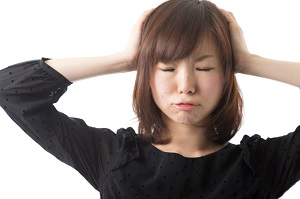 Choices have consequences. Seems obvious, right? Choose well and we get to enjoy the positive consequences. Choose poorly and we usually suffer the negative consequences. Often the consequences—good or bad—teach us lessons or reinforce what we already believe. Generally, when we accept the consequences as natural results of our choices, accept responsibility for them, learn what we need, and move on, we can feel remarkably at peace about even some of our seemingly poorest choices. What I often see in my practice are the ways in which people get stuck in a place of judgment, often punishing themselves above and beyond the natural consequences of their choices.
Choices have consequences. Seems obvious, right? Choose well and we get to enjoy the positive consequences. Choose poorly and we usually suffer the negative consequences. Often the consequences—good or bad—teach us lessons or reinforce what we already believe. Generally, when we accept the consequences as natural results of our choices, accept responsibility for them, learn what we need, and move on, we can feel remarkably at peace about even some of our seemingly poorest choices. What I often see in my practice are the ways in which people get stuck in a place of judgment, often punishing themselves above and beyond the natural consequences of their choices.
I see this dynamic play out regularly. There’s a cycle of choice-consequence-judgment that perpetuates unhealthy beliefs and attitudes. For example, I had a client share with me a story about a dinner out with a friend. The friend wanted to order a particular dish to share, but my client knew that this particular dish, while delicious, would probably make her feel sluggish and headachy in the morning. She was torn. On one hand, she wanted to be accommodating, and the dish sounded really good. On the other, she wanted to take care of herself. She ordered the dish.
In the morning, as predicted, she felt sluggish and headachy. That could have been the end of the story. She knew what consequences that choice would bring, weighed them against the pros of ordering something that would taste good in the moment, choosing something that could be shared with her friend, and avoiding feeling like she was “difficult”—something that doesn’t feel good to her. She made her choice; she suffered the consequences. Done. Except it wasn’t. To all of that physically icky feeling, she then added a layer of judgment. These thoughts included, “I’m weak-willed. I can’t believe I did that. What’s wrong with me that I can’t make better choices? I’m a terrible person. I will never learn/get better/make good choices.” She came to see me feeling lousy both physically and emotionally.
This is but one example of many I see on a daily basis. People who make ostensibly poor choices kick themselves when they’re already down. It is not fun for them. It’s demoralizing. More importantly, it is unnecessary.
The truth is we all make poor choices sometimes. We do things we know aren’t great for us. We know that the consequences aren’t likely to be great. We may have very compelling reasons for making those choices. We might not—we might just do/say/eat something simply because we want to. As long as these activities don’t threaten significant permanent physical or emotional damage to ourselves or those around us, those choices truly are ours to make. If we own those choices, if we are deliberate about choosing and accepting the consequences, there is no need for the shame that comes with self-judgment.
So why do we do it?
A few months ago, I wrote a piece on “should” and how it contributes to anxiety. The should messages we tell ourselves generate feelings of dissatisfaction and, often, self-recrimination. Somehow we are not meeting the expectations we or others have set for ourselves. The choice-consequence-judgment cycle fits into this model. We feel we “should” know better somehow. We should always make the “right” choices. We are not able to simply accept that sometimes we make choices that don’t work so well for us. We are not able to see the value in making mistakes or the opportunities to learn from negative consequences. Somehow we’ve internalized the message that we must be right/perfect/good all of the time—even when we are trying something for the first time. Not being right/perfect/good somehow means that we are less than, are weak, are failures. Making poor choices feels like the end of the world. We create meaning to explain those choices—repeating messages we’ve heard or created along the way (I am lazy, I am weak, I’m irresponsible …). We spend a lot of time looking for excuses for those choices, sometimes putting the blame and responsibility outside of ourselves because blaming others feels more palatable than blaming ourselves. When we do blame ourselves, we look for defaults in our characters to explain why we chose the way we did.
Fortunately, we don’t have to do this. There is something tremendously empowering about owning our choices and accepting the consequences. If we weigh the pros and cons of our choices, understand the potential consequences, and accept what comes, we are the agents of our own lives. If we view our choices as intentional actions, expressions of want, not something we passively stumbled into, or worse—attempted to avoid, but were overpowered by—we no longer cast ourselves as victims, helpless in the face of overwhelming pressures. We learn that, next time, we can make a different choice, or even the same choice, for that matter. We learn we have the power to change. We allow ourselves to move forward and on to the next opportunity to choose.

The preceding article was solely written by the author named above. Any views and opinions expressed are not necessarily shared by GoodTherapy.org. Questions or concerns about the preceding article can be directed to the author or posted as a comment below.

 Meet the GoodTherapy.org Topic Experts: Erika Myers
Meet the GoodTherapy.org Topic Experts: Erika Myers How 'Should' Messages Set the Stage for Anxiety
How 'Should' Messages Set the Stage for Anxiety Golden Rule of Self-Care: Be as Kind to Yourself as You Are to a Friend
Golden Rule of Self-Care: Be as Kind to Yourself as You Are to a Friend

Please fill out all required fields to submit your message.
Invalid Email Address.
Please confirm that you are human.
Leave a Comment
By commenting you acknowledge acceptance of GoodTherapy.org's Terms and Conditions of Use.